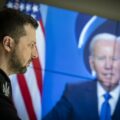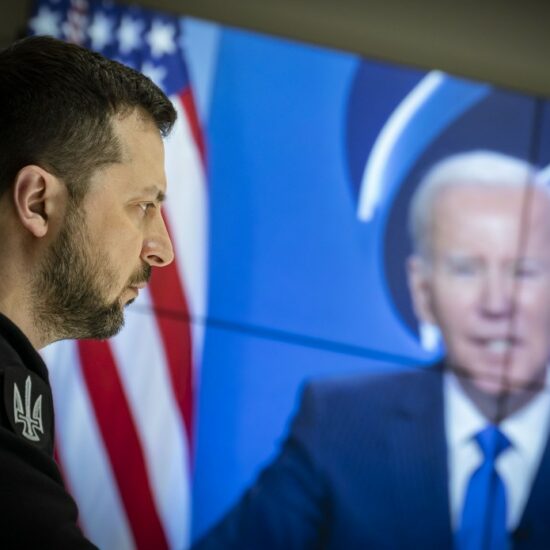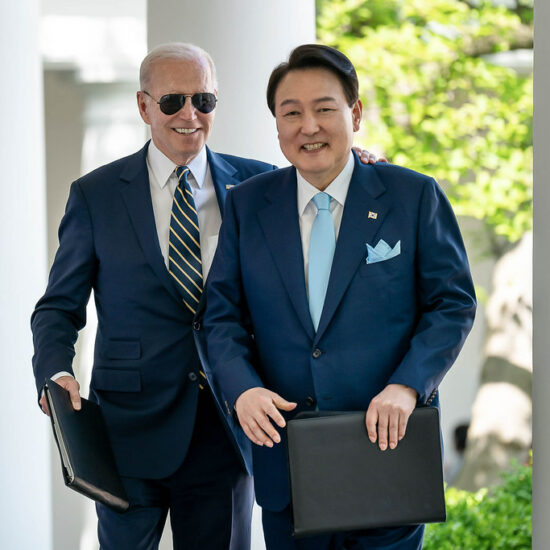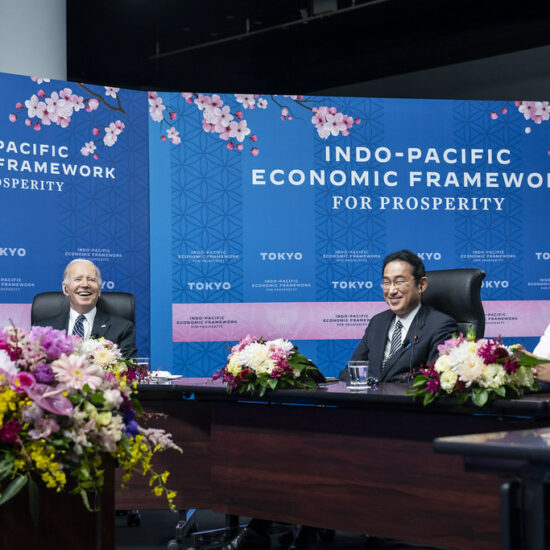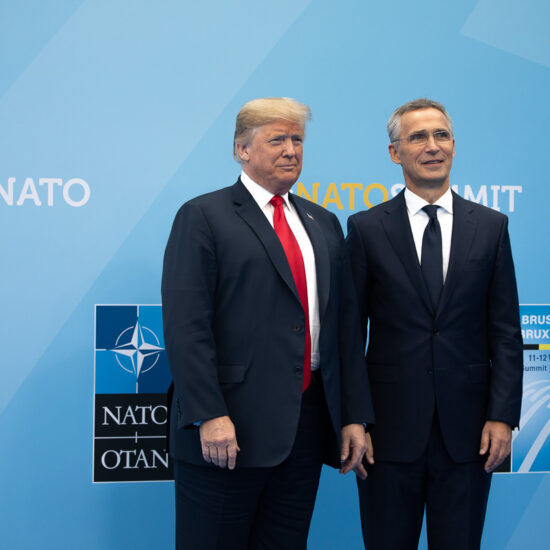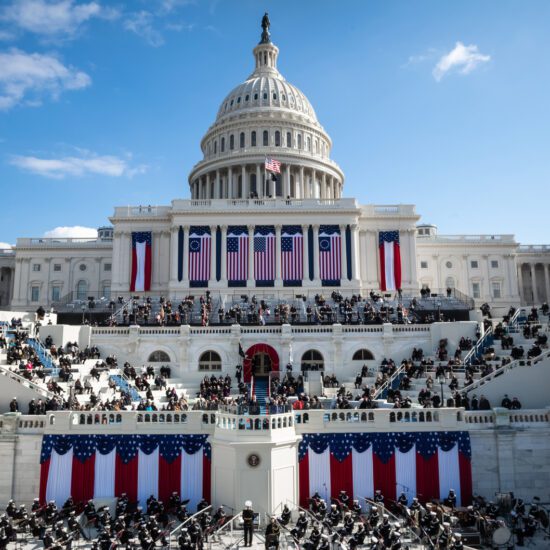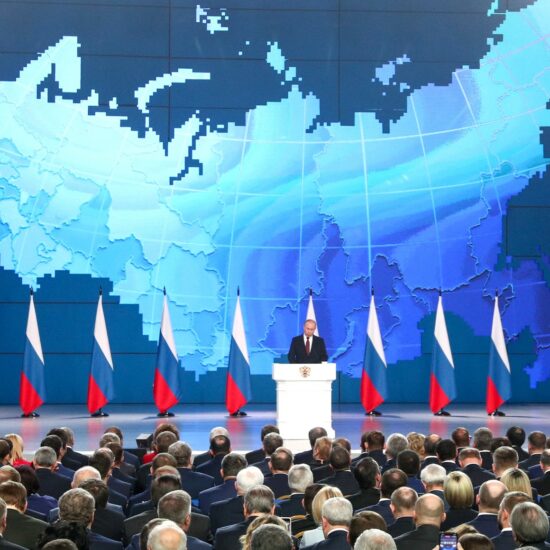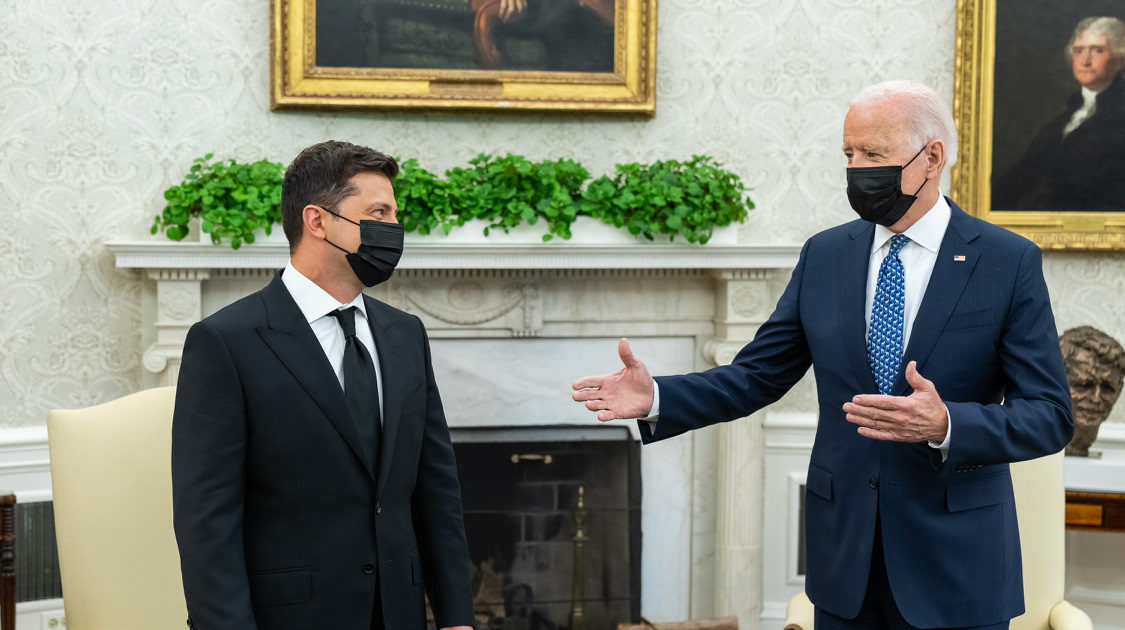
Image credit: The White House
By David Carment and Dani Belo
Against the backdrop of Joe Biden’s Summit for Democracy half a world away, eastern Ukraine was witness to a level of sabre-rattling the country had not seen since the spring of this year. In many ways, recent tensions on the border are familiar to observers of the conflict in Ukraine. But this time, the causes of escalation are more complex.
As an ally of Ukraine, Canada has been supporting Kyiv diplomatically as well as through the supply of war materiel and training. However, such support by Ottawa and other NATO members has contributed to more impulsive and misguided decision-making in Kyiv, making the conflict even more intractable. Instead, Canada and its international allies must focus on de-escalating military tensions with Russia and encourage the leadership in Kyiv to pursue a diplomatic route of conflict resolution. To this end, Kyiv and the NATO alliance must first become attuned to Russia’s long-term regional security concerns and demands for security guarantees.
Designed for audiences both domestic and beyond the region, Ukraine has devised a strategy intended to direct attention towards Russian intransigence and away from Kyiv’s chronic ineffectiveness. Such attention ensures that the US remains concentrated on punishing Russia, in addition to mobilizing allies and supporting Ukraine’s weak leadership. Ukrainian President Volodymyr Zelensky is facing increasing political backlash from local media and the public on a number of fronts. Whether it is to help Zelensky remain in power, or a way for Washington to contain Moscow and rally its allies, the narrative of Russian aggression has remained dominant over the course of this eight-year war.
A fair question to ask is whether recent tensions are different from those in the past. The answer to that question is yes and no. After all, this is not the first time that Kyiv has focused on the Russian threat prior to a major summit. On the one hand, a Russian invasion of eastern Ukraine is not on the books. The original story of a Russian Forces buildup on the border with Ukraine was both inaccurate and misleading. Claims were made that some 90,000 Russian troops remained on the border with Ukraine following the scheduled Zapad-2021 exercises. In reality, troops were never adjacent to Ukraine. The closest exercise training ground for Zapad was some 300km from the Russia-Ukraine border. Moreover, the major exercise locations in Russia such as Dorogobuzh, Volsky, and Mulino are 400km, 900km, and 850km from the border, respectively. Even without reliable anonymous information, however, news stories intimated a renewed fear of Russian aggression and strengthened a subsequent improbable narrative of a Russian invasion of Ukraine by January 2022.
On the other hand, like his predecessor Petro Poroshenko, Zelensky’s presidency has been tarnished by operational failures and scandals. These scandals are turning public opinion against the president. A president who won the 2019 election with some 73 percent of the vote has now lost the confidence of the public, with the latest polls indicating a 28 percent approval rating. That is better than where Poroshenko was just before he lost the election in 2019 but it is a significant drop nevertheless.
A major reputational disaster for the Zelensky administration was the failure to capture Russian mercenaries from the Wagner Group, who fought on behalf of the separatists in Donbas. Public revelations regarding the operation and the eventual repatriation of the fighters to Russia proved to be an embarrassment. At first, Zelensky and others in his cabinet denied the operation. Once it was revealed, the president became accountable and the public demanded answers which he could not provide. The advantage for Zelensky, however, is that his wish to maintain power aligns with Washington’s strategic interests to support him as a leader.
Even though the US does not have treaty obligations with Ukraine, the country is still important for strategic reasons. Ukraine is the wedge that keeps Russia and Europe from closer economic integration and cooperation. A Europe on good terms with Russia portends a future which the US or at least its defence establishment cannot accept. Nor, however, can the US risk having a weakened Ukraine as an ally. That is why, despite all the sabre-rattling, for the foreseeable future the Biden administration will be scrutinising all aspects of its engagement in the conflict.
For example, the White House has ordered a major review of all American missions in the region with a heavy focus on those involving actions toward Russia. According to the Biden administration, there have been 3,000 close contact incidents between American and Russian forces over the past 8 years. These flashpoints need to be managed as they undermine the deterrence that has been in place for decades by creating room for military accidents, miscalculations and errors.
Some of these incidents are quite worrying and include sending US strategic bombers carrying nuclear weapons within 12 miles of the Russian border. On November 23rd, Russia’s Defence Minister Sergei Shoigu pointed to two incidents of American planes, which rehearsed the delivery of nuclear weapons on targets in Russia. According to Shoigu, many such dangerous maneuvers have occurred in the Black Sea as NATO patrols increase.
It is clear to both sides that close calls like these cannot continue in the absence of concerted diplomatic efforts. This became clear when US Secretary of State Blinken met with Russia’s Foreign Minister Lavrov on December 3rd to make diplomatic contacts in anticipation of another meeting between Biden and Putin. The key indicator that such a meeting would take place is the foreign ministers’ focus on the bilateral commitment to the Strategic Stability Dialogue, developed by the two leaders at the June 2021 Geneva Summit. Moreover, in a December 17th proposed agreement drafted by Russia, the Kremlin has made clear that the resumption of Russia-NATO dialogue is a core component of lasting regional peace.
Yet despite diplomatic efforts, a troubling wrinkle remains: the appeal from Zelensky’s Defence Minister to Canada, the US, and the UK to send troops in direct support of Kyiv’s war fighting in Donbas. This direct appeal amounts to an effort to circumvent NATO decision-making. However, following the virtual conference between Biden and Putin on December 7th, there was a clear indication that the US will not send troops to defend Ukraine. Nor will Canada for the foreseeable future. For now, the US will continue its shipment of heavy weapons though even that is not without controversy. The decision to arm Ukraine thus far created more insecurity than a lasting peace, as the move only emboldened Kyiv to take back the Donbas by force, rather than pursue dialogue with the separatists.
Ultimately what matters for Canada is that NATO, an alliance in which Canada has invested considerable blood and treasure, is at risk of becoming increasingly fragmented over the question of how to support Ukraine. The current conundrum regarding Russia and Ukraine is a real test of resolve for Ottawa policymakers. Long before the long-term question of Ukraine’s accession to NATO can even be contemplated, Canada risks getting caught up in a rapid escalation of the conflict that need not happen. To address the recent rise in tensions, Canada’s efforts are best spent on diplomacy and direct talks with Russian leaders, trying to improve the quality of leadership in Ukraine and contributing to a de-escalation of the conflict in eastern Ukraine.
David Carment: IPD Senior Fellow, Editor of “Canadian Foreign Policy Journal” and Professor of International Affairs, Carleton University
Dani Belo: Assistant Professor of International Relations, Webster University

